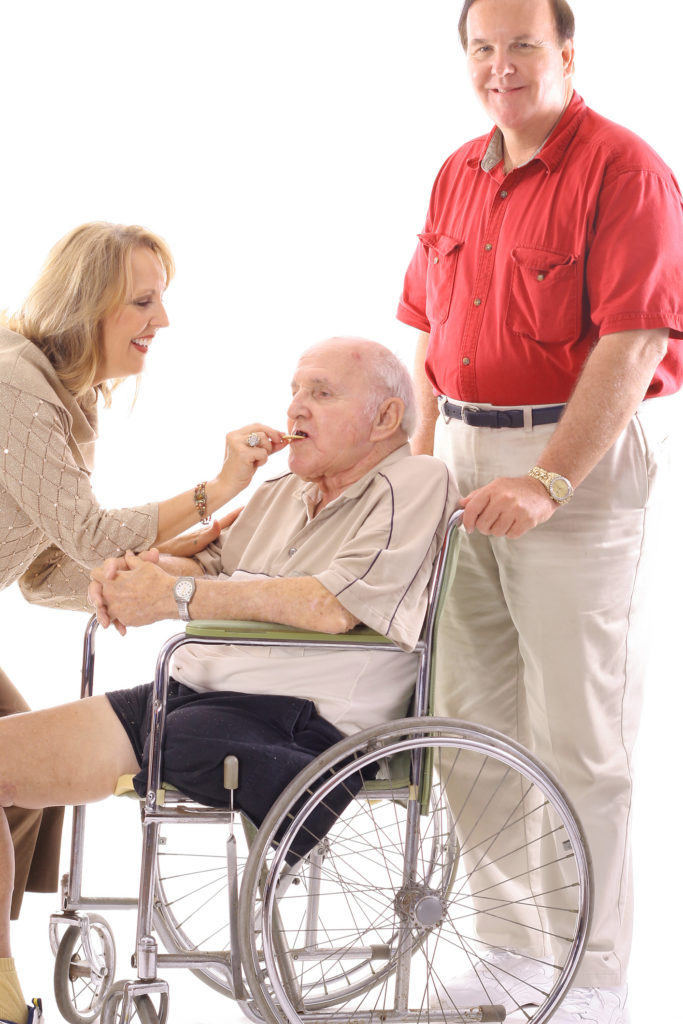As we get older, so do our bodies and our mentality. Each year, more than fifty percent of people develop dementia, often referred to as senility. Dementia is a disease that takes a toll on memory loss and the ability to think. It can last for years or be permanent. Over time, people who have dementia will lose their memory completely in the final stages of the disease.
We, at A-1 Home Care Agency have put together an article listing some of the most commonly used, and effective oils that have proven their worth when handling the symptoms of dementia or Alzheimer’s Disease.
The Common Side Effects of Dementia Elders Face
There are some side effects of dementia, sometimes due to medication, such as (Mayo Clinic, 2017):
Memory loss, mental decline, confusion in the evening hours, disorientation, inability to speak or understand, making things up, mental confusion, or inability to recognize common things.
Irritability personality changes, restlessness, lack of restraint, or wandering and getting lost.
Anxiety, loneliness, or mood swings.
Depression, hallucination, or paranoia.
Inability to combine muscle movements or unsteady walking.
Falling, jumbled speech, nervousness, or sleep disorder.
Although it is strictly advised for any prescription medication to be taken by a senior patient’s doctor, there are also additional home remedies to help maintain and cope with side effects of dementia. One of them is essential oils, which have been praised for their soothing sensation when applied to the skin and relaxing comfort by smell. Here are some essential oils that can help reduce any pain and discomfort from dementia side effects such as anxiety, depression, and chronic issues ((Alzheimers.net, 2015):
Lavender
Lavender is thought to be calming and able to balance strong emotions. It has also been used to help with depression, anger and irritability, and can help in some cases of insomnia. Lavender can be directly inhaled, used a massage oil or sprayed on linens.
Peppermint
Peppermint is an energizer and can be used to stimulate the mind and calm nerves at the same time. Best used in the morning, peppermint oil can be inhaled directly, diffused in a room, used as a massage oil, sprayed in the air or even placed in a bath.
Rosemary
Similar to peppermint, Rosemary is an uplifting oil used to stimulate the mind and body. It may even improve cognitive performance and mood. Rosemary has also been known to ease constipation, symptoms of depression and also reinvigorate the appetite. Rosemary oil can be directly inhaled, diffused through a room or used as a spray.
Bergamot
Bergamot can be used to relive anxiety, agitation, mild depression and stress. This mood elevating and calming oil can also be used to relieve insomnia. To use bergamot oil, place a few drops in a bath, use as a massage oil, diffuse through a room or use a spray on clothing or linens.
Lemon Balm
While lemon oil may be among the more expensive oils, it is also one of the most studied and more effective oils. It has been shown to help calm and relax people who are dealing with anxiety and insomnia, improve memory and ease indigestion. Lemon oil can be dropped into a bath, inhaled directly, diffused, sprayed or applied directly to the skin as a massage oil.
Ylang Ylang
Ylang Ylang oil can help ease depression while also promoting good sleep. This is a great oil not only for a person living with Alzheimer’s, but also for caregivers struggling with restlessness and lack of sleep. Ylang Ylang is often combined with lemon oil and can be placed in a bath, inhaled, diffused or sprayed.
Ginger
Ginger oil is helpful for anyone struggling with digestion issues. Commonly used to treat a loss of appetite and constipation, ginger can help promote good eating habits. Ginger oil can be applied directly to the skin as an abdominal massage, inhaled, diffused, sprayed or placed on a compress.
Our caregivers here at A-1 Home Care Agency are certified and go through an extensive background check, including drug test and criminal. They specialize in both post-surgery and recovery for different diseases and illnesses, including managing the side effects of dementia. Our caretakers assist with all aspects of in-home living for their patients including cooking, cleaning, food and medicine modernization, as well as assistance with personal hygiene and transportation to any scheduled appointments. If your loved one requires further in-home assistance, do not hesitate to call us 949-650-3800 or 562-929-8400 to speak with one of our representatives.






